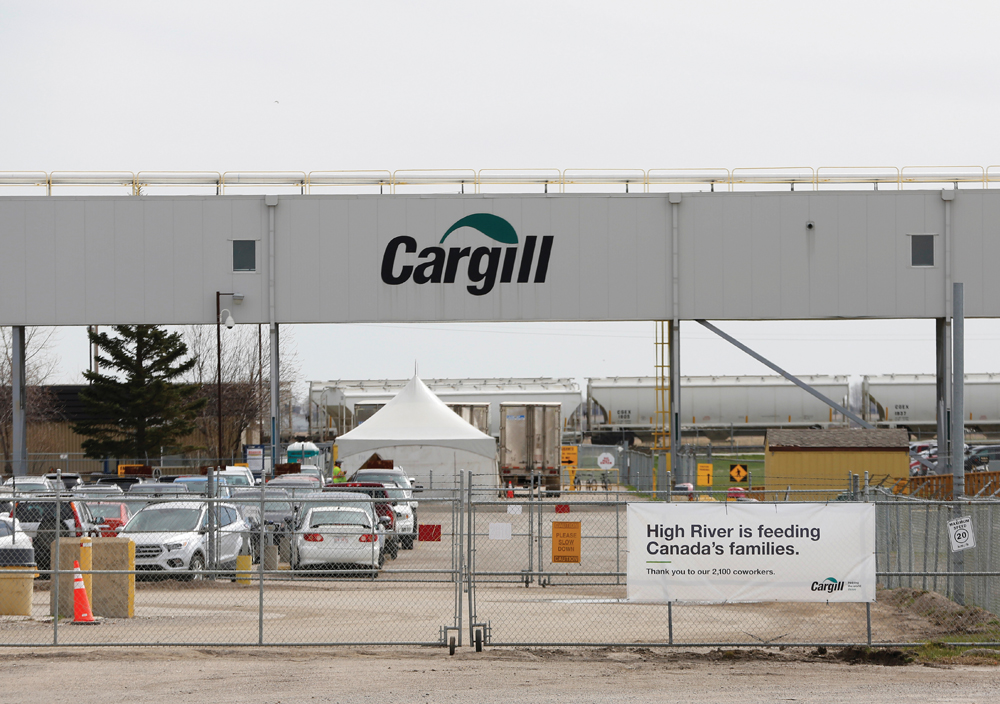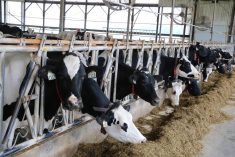The first spending round of a $77.5-million fund to help food processors in the wake of COVID-19 is being rolled out by the federal government.
On Sept. 4, Agriculture and Agri-Food Minister Marie-Claude Bibeau announced 32 projects have been approved for up to $10.54 million in federal funds to help mitigate impacts of COVID-19.
Money, first announced in May, is aimed at helping companies purchase reusable personal protective equipment (PPE), sanitation stations or productive barriers, to enable social distancing or develop additional training.
Read Also

Mazergroup’s Bob Mazer dies
Mazergroup’s Bob Mazer, who helped grow his family’s company into a string of farm equipment dealerships and the main dealer for New Holland machinery in Saskatchewan and Manitoba, died July 6 from cancer.
The federal government announced the funds to processors in May, after COVID-19 cases among staff led to shutdowns or slowed production at several Canadian meat plants.
According the federal government, the remaining money in the fund will be going to projects still being assessed by Agriculture and Agri-Food Canada (AAFC).
“We expect to have the full fund committed by the end of the month,” Bibeau said during a Sept. 4 interview.
Representatives from Food and Beverage Canada have previously estimated the cost of adapting to accommodate workers during the pandemic will be around $800 million.
During a May meeting of the Standing Committee on Agriculture and Agri-Food, Food and Beverage Canada CEO Kathleen Sullivan said the pandemic had created a huge problem for the industry and requires significant capital investment.
“We are facing a new normal of extraordinary cost pressures that we need to address somehow either by means of government support or by food price increases,” she said. “We didn’t build our food plants to accommodate social distancing, we built them to accommodate food safety.”
Telling the committee that cost was “impossible” to pass on to consumers, especially given its magnitude, she called for policy changes to assist her membership.
“The ongoing pressures that we’re facing are undoubtedly going to destroy some companies and drive them into bankruptcy,” she said.
Bibeau said her government will, “always stay open to respond to the needs of our producers and processors, but let’s proceed with this first and see.”
During the series of committee meetings earlier this year, which featured stakeholders responding to the government’s plans to support the industry during the pandemic, several other groups expressed concern over the amount of money available in the $77.5-million Emergency Processing Fund, or the conditions attached to the money.
The Canadian Poultry and Egg Processors Council estimated more than $87 million was spent just in March and April to protect workers, and has raised concern over eligibility requirements calling for reimbursement only to companies buying reusable, rather than disposable, masks.
“We can’t ask for reimbursement on disposable masks. It has to be reusable masks, and that will add to the costs,” said Canadian Poultry and Egg Processors Council chair Joël Cormier in May, noting his workers require disposable masks. “We’re trying to protect workers here, masks are absolutely needed. Washable ones are not good enough in this sector.”
Bibeau said the Emergency Processing Fund wasn’t specifically for masks, but said there was other funding – some coming from provinces – to assist businesses with buying that type of equipment.
“This program was targeting the improvement of the infrastructure, the workspace, to make it safe,” she said.
Carla Ventin, senior vice-president of Food & Consumer Products of Canada, also told committee members the $77.5 million would fall short of properly supporting the industry.
“We are really concerned that the $77.5 million will not even cover the costs already incurred by the primary meat processors,” Ventin said earlier this year.



















